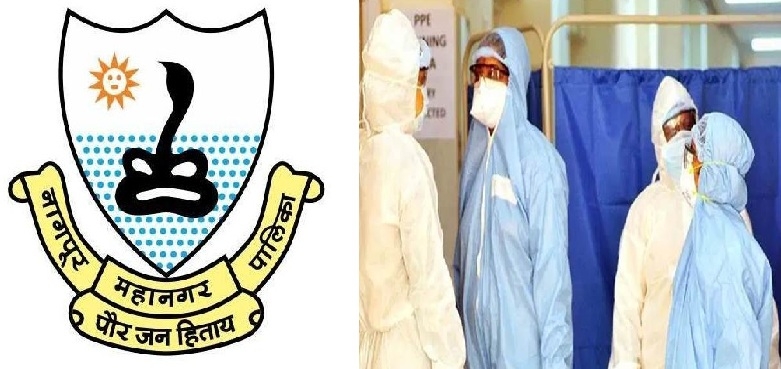‘NMC can use recovered COVID-19 patients as volunteers’
| Date :16-May-2020 |

By Vikas Vaidya :
The Rapid Response Team submitted report to Divisional Commissioner and copy of the same was sent to all health institutes
The major fear haunting the administration regarding coronavirus is whether the corona positive patients would follow the guidelines after recovery? Rapid Response Team led by professors of All India Institute of Medical Sciences (AIIMS), Nagpur has the solution for it. “In areas like Satranjipura, after all residents (especially those who were never positive) who return after quarantine, may become relaxed to follow social distancing and other measures.
It becomes important to maintain NIL status in such area. To enforce that the community follows the guidelines, NMC can use cured COVID-19 patients as volunteers. Area wise groups of immune persons (those who got cured) can be used.” It is first of its kind experiment in State under which the Response Team was constituted. Divisional Commissioner Dr Sanjeev Kumar initiated the idea. Maj Gen Dr Vibha Datta, SM Director, AIIMS responded to it and appointed Dr Prashant Joshi, Professor of Medicine at AIIMS Nagpur and Dr Pradeep Deshmukh, Professor of Community Medicine. The committee that has other health officials visited the areas like Satranjipura, Mominpura that has four dedicated COVID Hospitals, 1 dedicated COVID Health Centres, and 1 COVID Care Centre.
They were expected to review Standard Operating Procedure (SOPs) for clinical management protocol in COVID and Non-COVID hospitals, to review of IPC in CCC, DCHC and DCH and to provide expert technical care inputs to treating physicians. The report has been submitted to Divisional Commissioner recently. The committee recommended, “The positive patients recovered and discharged can be link workers as well - link between the community and the health system. Videos can be prepared on the experiences of these persons in isolation and on overall process which can be circulated among the community members to extract more compliance of the community.”
It further recommended, “Death audit of all the deaths in the area should be conducted using NCDC format. This may identify a probable case of COVID 19 and can help block chain of transmission at the earliest. In future containment zones, three waves of house-to-house survey should be planned. First wave should be completed within three days of containment, second wave between day 5-8 and third wave between day 12-14 days for effective detection of suspects.” The committee gave another interesting recommendation. It is, “Community need to be proactively engaged in community management. In urban areas, Rogi Kalyan Samiti, Mahila Arogya Samiti and in rural areas Village Health, Nutrition and Sanitation (VNHSCs) Committees may be involved.
They can be involved to active engagement with community for house-to-house survey, health communication and enforcement of social distancing, cough etiquettes, use of mask, hand hygiene, and essential mobility.” Appreciating efforts of Nagpur Municipal Corporation, the committee observed, “NMC also innovated in early testing. Instead of testing contact between 5-14th day, NMC tested them on day 1 leading to early detection, prompt treatment and isolation. This might have led to lesser mortality and less number of severe disease in Nagpur. It could have stopped chain of transmission in the area. The dedicated efforts of NMC medical officer Dr Meenakshi Mane and prompt action taken by NMC to quarantine large number of residents in Satranjipura is appreciated.” In Mominpura, since the population was huge, mass quarantine was not feasible.
Contact tracing was going on. Attempts were made to involve community leader to defuse community resistance for testing and quarantine, observed the committee. Other innovations by NMC include, survey of elderly and comorbid people. NMC has conducted house-to-house survey to identify at risk population and created a database of elderly and comorbid population. Around 25 lakh people have been surveyed in Nagpur. Special care of high-risk population like ANC, TB, Leprosy, Cancer, Hypertension, Diabetes has been initiated. They are being provided house visits and required medicines are being provided at doorsteps.